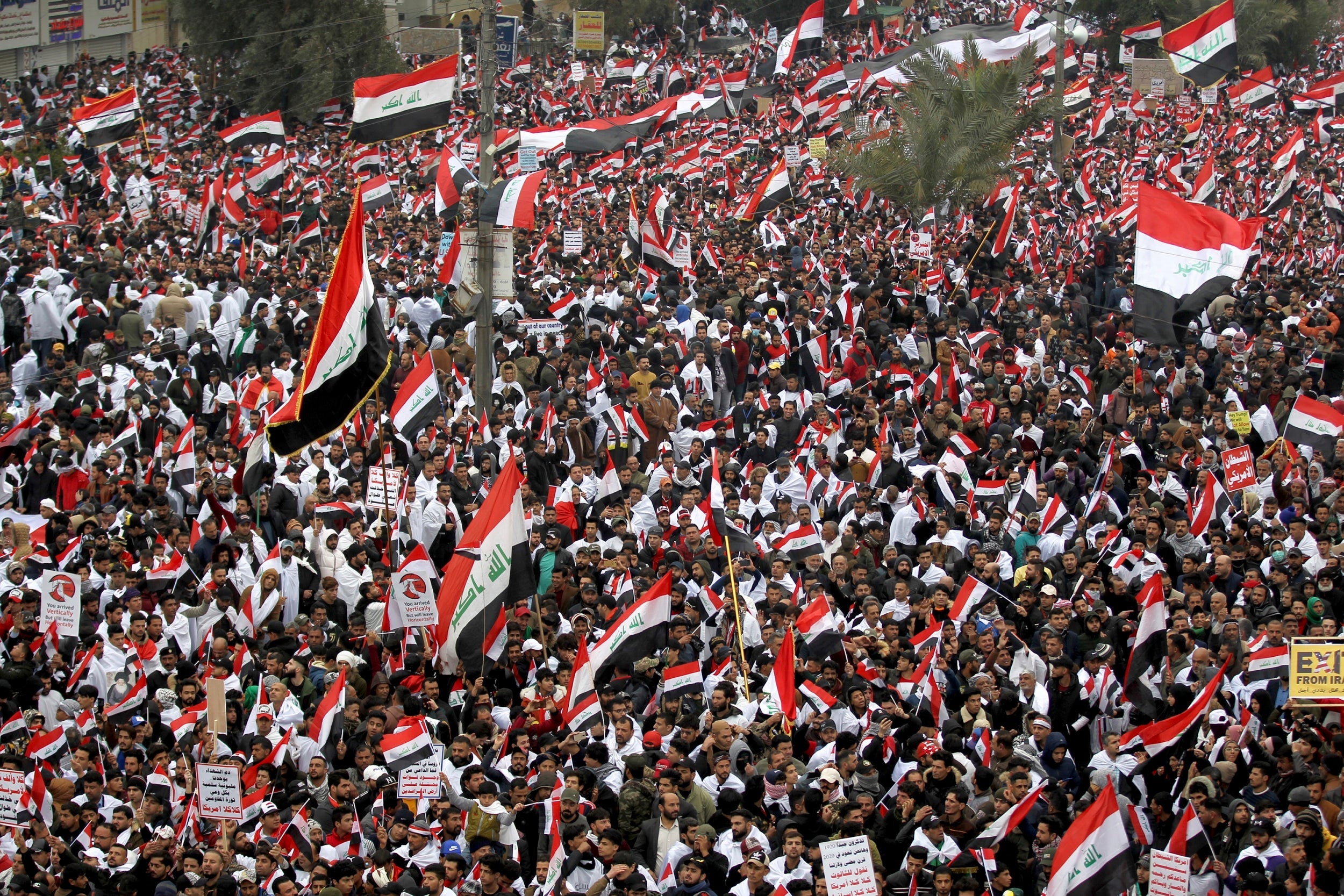Iran’s intervention in the forming of Iraq’s government is a recipe for unrest
Baghdad now has much in common with Beirut – politicians are simply ignoring the demands of protesters, writes Ahmed Aboudouh


The process to choose Iraq's new prime minister Mohammed Tawfiq Allawi, who won the nomination by a nose, was selected using the same playbook the Lebanese Iran-backed Hezbollah has followed in setting up the new government in Beirut.
The Lebanese cabinet was formed last month, despite all the public objections. Protesters filled Beirut streets hoping for change, and their demands were sidelined. They asked for a breakaway from sectarian quotas in the country's political system. They also demanded a cabinet of technocrats. However, the outcome reflected the stark difference between the protesters' aspirations and the reality. Hassan Diab, who served as education minister in a previous Hezbollah-backed cabinet, was named new prime minister. And while a government of technocrats is what has been unveiled, the members are widely seen as beholden to Hezbollah – itself backed by Iran – and its Shia and Christian allied movements. For Tehran, stripping the uprising of its momentum was important.
Things don’t look any better in Iraq, despite the deaths of more than 600 protesters and the wounding of 20,000 others since October. They are calling for a secular government, free of Iran’s influence, and an end to corruption. Their demands were met with live ammunition and repression from the security forces and militias aligned with Tehran. They seem able to take it all, but what they can’t endure is yet another government that just repeats history. They are also losing any trust in Muqtada al-Sadr, one of the most powerful clerics in the country.
Many activists I have spoken to see Sadr as two-faced, riding a wave that is beneficial to him. In the beginning, he ordered his followers to join the protests and called on prime minister Adel Abel Mahdi to resign. But after the killing Qasem Soleimani, Iran’s powerful military commander and the effective kingmaker in Iraq, Sadr's position shifted. Instead of maintaining support for the protesters, his followers started focusing on ending the American presence in Iraq, something Iran is also after.
On Saturday, in a simultaneous move as president Barham Salih was announcing Mohammad Allawi as the consensual new prime minister-designate, Sadr’s Saraya Al-Salam militia cleared a major sit-in near Tahrir square in Baghdad after clashes with politically-independent protesters.
Iraq and Lebanon now have much in common. Politicians are simply telling uprisings: “We will listen and change the government – in return, you will have to stop.” But the change comes in name only. They even didn’t bother to come up with fresh faces. The prime ministers of Iraq and Lebanon have been chosen according to the delicate political and sectarian balance, and with no serious plan for tackling corruption. Hezbollah and the Amal movement replaced Saad al-Hariri with a Sunni academic loyal to them in Lebanon. In Iraq, there are some new names, and the new prime minister says they are independent, but we have seen it before.
During talks to form Abdel Mahdi’s cabinet in 2018, Sadr gave up his five portfolios, but his parliamentary bloc, the Saeroun, made sure to wield its power. In the end, the Shias, Sunnis and Kurds keep their power balance with little significant change.
This is a reminder of events in Egypt. Before the Muslim Brotherhood were rounded upon by Abel Fattah al-Sisi and the military after their leader, and the country's president, was overthrown, they had worked together with the military in the wake of the mass protests in early 2011. However, the then-prime minister Essam Sharaf (who happened to be an ex-minister himself, just like Diab and Allawi) was eventually derided by protesters as a puppet of the military after a crackdown on demonstrations later in the year.
Yet in the Middle East those who seek to cling to power tend to fall back on the same principles when their people confront them. Military juntas, extreme clergy and authoritarian monarchies adopt the same plans and strategies, regardless of their ideologies. When danger is imminent and they are suddenly squeezed into a corner, they always rush towards striking deals for salvation.
Both new leaders of Lebanon and Iraq are closely linked to groups connected to Iran. Yet young demonstrators in both Beirut and Baghdad reject them, with the fact that people in both countries face tough economic conditions a driving factor.
Allawi’s biggest mistake yet is treating his country’s angry young men and women as a mere nuisance. In a video after the publication of his name as the new prime minister, he promised protesters that he would “step down” if forced by politicians to form a government he disagreed with. Iraqis will almost certainly find it hard to believe that Iran, facing its own problems, would give him carte blanch to dismantle its influence in Baghdad by allowing him to proceed with his promises of “approving the new political parties law and fighting corruption.” Allawi was even endorsed in public by a government spokesperson in Tehran.
Iran’s policy in Lebanon and Iraq is a recipe for unrest. It wants control at a time when the people want reform. That will only lead to more turmoil – with citizens bearing the brunt of it.
Join our commenting forum
Join thought-provoking conversations, follow other Independent readers and see their replies
Comments
Bookmark popover
Removed from bookmarks